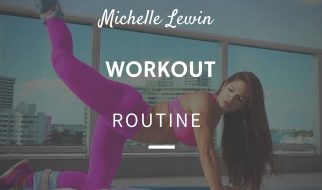The social pressure on new mothers to breastfeed can, at times, be psychologically unhealthy.
 @ChrissyTeigen
@ChrissyTeigen
Whether it?s with breast milk, formula, or a combination of both, every mother and baby needs to figure out the feeding choices that work best for them.
These days, our culture sends a strong message about the benefits of breastfeeding. Many moms feel proud when breastfeeding is going well ? like they have passed their first important test of motherhood with flying colors. That being said, not every woman can or wants to breastfeed, and it?s my opinion that the outcomes for babies who are formula fed may be academic, but in real life are imperceptible. Breastfeeding is not nature?s way of testing your abilities as a mother, and formula feeding is certainly not any indication of failure or insufficiency.
Whether it?s with breast milk, formula, or a combination of both, every mother and baby needs to figure out the feeding choices that work best for them. Though some find that it comes easily, most women say that breastfeeding involves a learning curve. It can take days or weeks for you and your baby to find your way.
The majority of women admit to me that, even when it works, breastfeeding is also really hard.
When you?re breastfeeding, the emotional experience of being able to give your baby exactly what she needs???nourishment and cuddling???can feel tremendously gratifying. Babies are hard to figure out, and often difficult to soothe, but when they?re hungry and want to be fed, they can become relaxed and fully content within moments. Being able to make that happen with your own body can feel like an exhilarating superpower, especially as your baby matures and becomes more challenging to soothe in other ways.
That being said, the majority of women admit to me that, even when it works, breastfeeding is also really hard. It can be painful on your nipples, and difficult for the baby to latch. This can become frustrating and exhausting, especially in the middle of the night when you?re the only one who can do the feeds because you?re the only one with the boobs. And sometimes, no matter how hard you try, it just doesn?t work.
Of course, bottle-feeding is not without its challenges.
Usually, supplementing with formula and/or pumping while you?re learning how to breastfeed is a good place to start. Supplementing with formula ensures that your baby will get enough food. Supplementing can also take the pressure off of you as you?re trying to find your way with breastfeeding. I?ve spoken to many moms who told me that supplementing with formula ultimately helped them stay calm and patient so that they were able to figure out breastfeeding eventually.
Breastfeeding also yokes your body to your baby?s. While some women find this to be a pleasurable assistance in bonding, for others, it feels like a constraint. If you?re sensitive to the feeling that pregnancy made your body stop being yours, and that the disparity of demands on you as compared to your partner were unfair, a long period of breastfeeding may not make sense for you.
Of course, bottle-feeding is not without its challenges. You may have to try several nipples before you find one your baby likes. And formula, too, is not one-size-fits all; you may have to try several different kinds before you find the one that?s best for your baby.
Food is often an emotionally charged topic in families, and how you feed your baby is not an exception.
I think that the social pressure on new mothers to breastfeed can, at times, be psychologically unhealthy. If you experience more stress than satisfaction from breastfeeding, it can be healthier for you and your baby to supplement with or switch fully to formula. The health of your baby depends on several factors, primarily feeding, sleeping, and bonding. If using formula helps your baby get more calories and sleep for longer stretches, that?s a good thing. And if formula helps you to be calmer and be more emotionally present during feeds and overall, then it may very well be more beneficial for your child?s health by facilitating your attachment.
Food is often an emotionally charged topic in families, and how you feed your baby is not an exception. Your mother may have breastfed you and may be judgmental of your decision to switch to formula for night feeds so you can sleep. Or you may be struggling to breastfeed and be hurt by your mother?s callous disregard of your efforts, saying she never breastfed you and what?s the big deal. You can choose to keep your feeding decisions private, and you don?t need to take anyone?s input. On the other hand, you may find that openness leads the way to surprisingly helpful conversations.
Whether you choose to breastfeed or bottle feed, there will probably come a time when you have to feed in public. In all 50 states, nursing mothers are protected by law and allowed to breastfeed anywhere in public. However, some people may see your feeding your child in public as inappropriate???you may receive stares, disapproving looks, or even unwelcome comments. And if you?re bottle feeding, you may hear from strangers their opinions or unsolicited advice about that. As with reactions to your pregnant body from strangers, it?s up to you how you respond. I encourage you to do what feels best for you, ranging from ignoring them, to smiling and nodding, to rolling your eyes, to giving them an unsolicited lecture about motherhood and unsolicited advice.
It?s important to remember that breast or bottle feeding won?t last forever. You?ll have a lifetime of being able to feed your child in other ways. One woman who was unable to breastfeed felt disappointed that feeding her baby with formula was ?unnatural.? When her baby was old enough to start solids, she approached making homemade organic baby food with gusto, which improved her self-esteem about being a ?natural? nurturer. While some moms would find it a burden to shop, prepare, and puree food that can easily be picked up at the grocery store, this mother found the process of food preparation to be a therapeutic way for her to manage her feelings of loss around breastfeeding.
Read my other posts:
- Matrescence ? What is it?
- I Love My Baby, But Sometimes I Don?t Like Motherhood
- The Mom Before the Storm ? How to Survive PPD
- Your Fantasy Baby vs Your Reality Baby
- When the Nanny Leaves
- Help! I Sound Just Like My Mother!
- I Don?t Recognize Myself or My Body
- The Goddess Myth & You
- Why Does New Motherhood Sometimes Feel Like Losing Yourself?
- Can I still be a ?Yummy Mummy? in Maternity Clothes?
- Birth Plans, Like Due Dates, Are Not Binding
- How to Get to the Root of the Problem
- PMS, Hormones, and The Female Brain
- The Good Enough Mother


